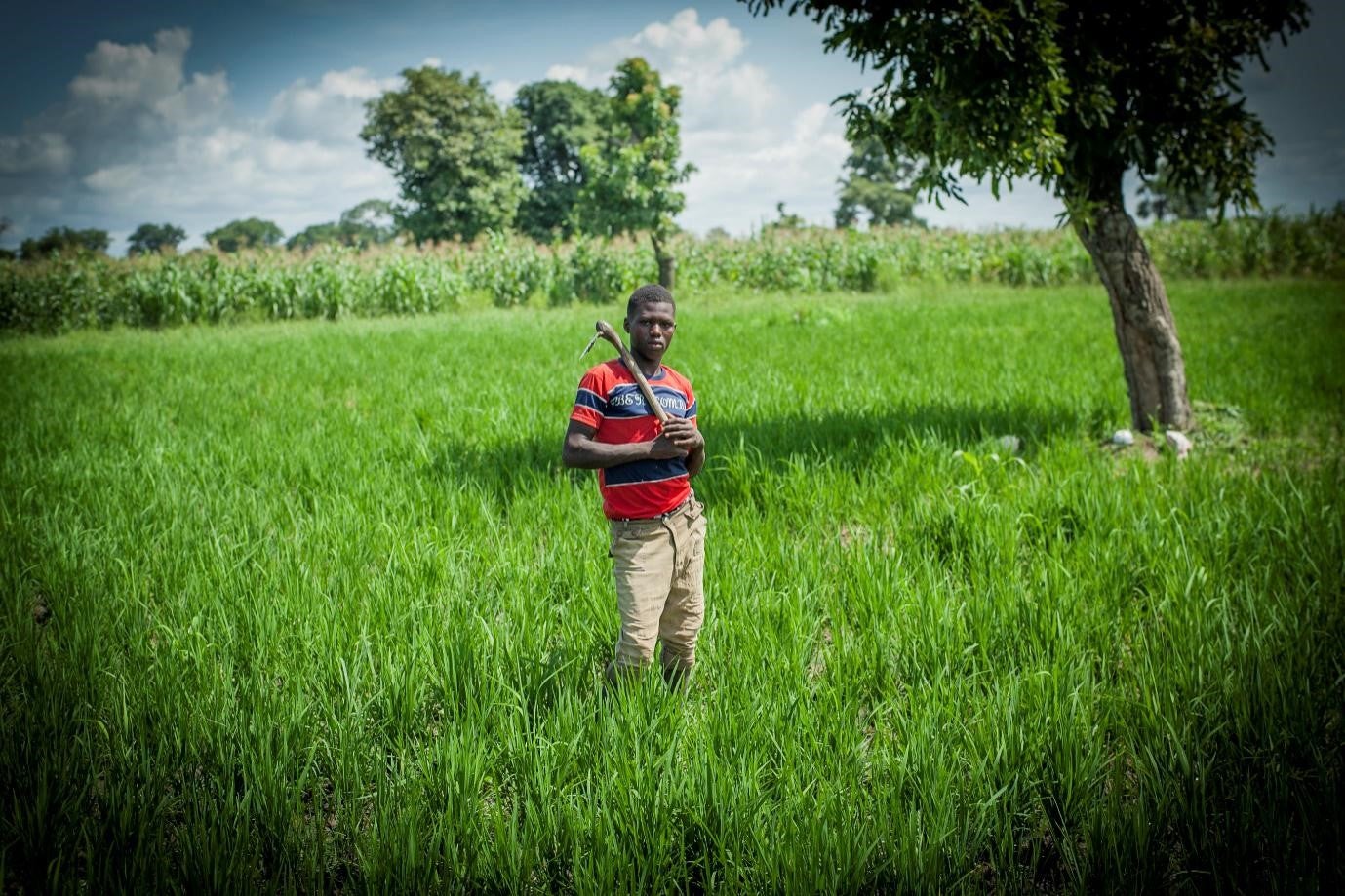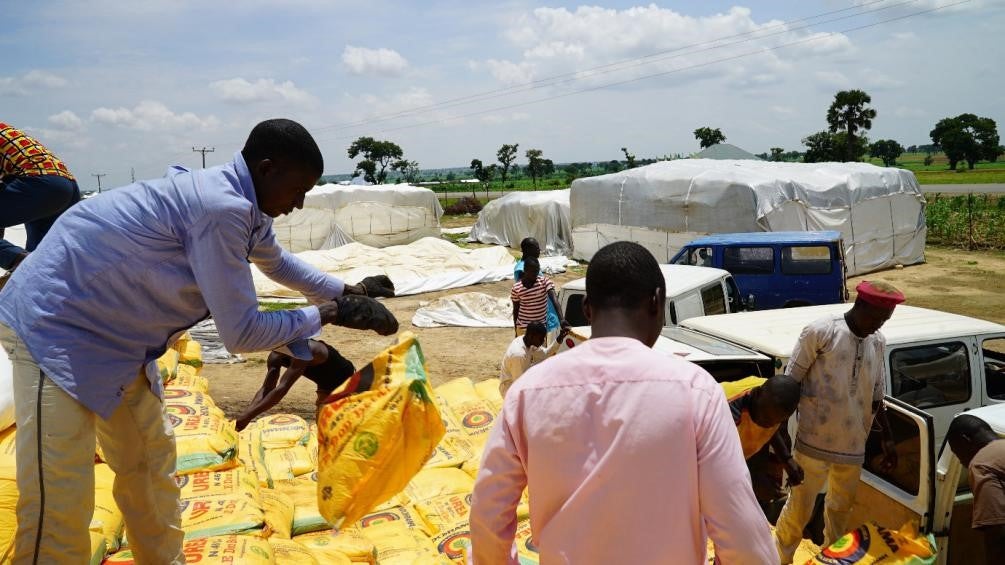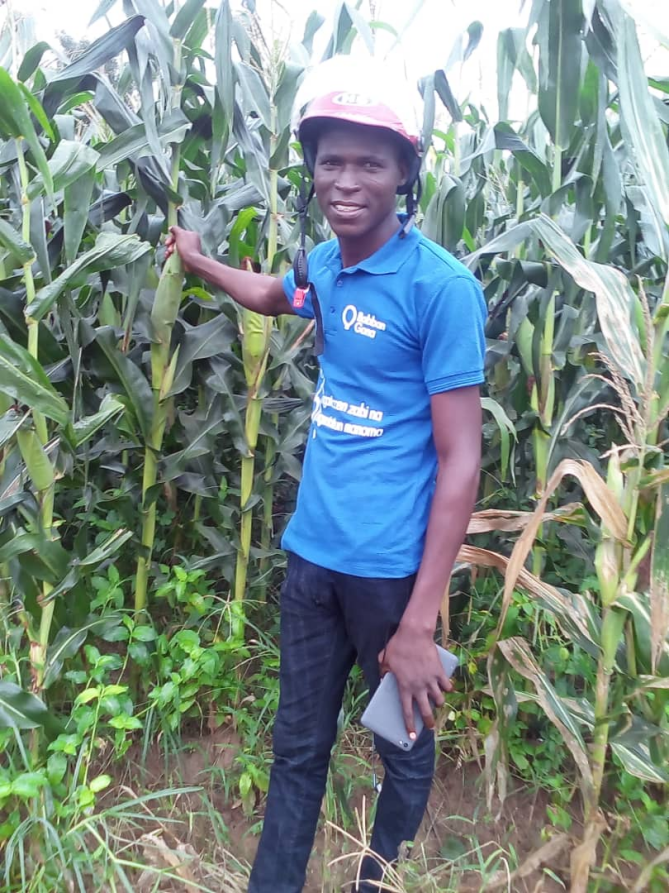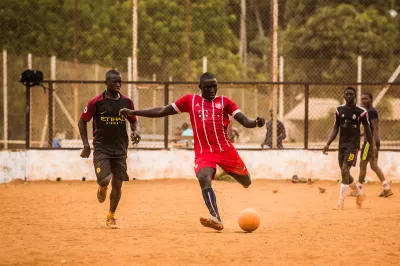Where Youth Join Trust Groups, Not Insurgency Groups
Over the past decade, there has been a dramatic rise in the level of insurgencies in Nigeria. A key driver of this increase has been the spiraling growth in youth unemployment across the country. In the next 20 years, an estimated 80 million youth will enter an already saturated workforce. Harnessing the potential of agriculture to create millions of jobs is also depriving insurgencies of the fuel they need to thrive, and financial services play an important part in realizing these opportunities.
Agriculture remains Nigeria’s job creation engine due to its size, growth potential, high labor demands and relatively low skill requirements. But to unlock its potential, the challenges facing rural livelihoods must be addressed. These include the high cost of farm inputs, poor access to credit, inadequate storage practices that increase post-harvest losses and poor access to markets.

Babban Gona, a social enterprise based in northern Nigeria, provides services designed to empower smallholder farmers by simultaneously raising their net incomes and agricultural productivity. Babban Gona franchises thousands of farmer cooperatives called “trust groups,” which enable member farmers to dramatically increase their profitability and yields. The average trust group has three to five members who grow staple crops (e.g., maize and rice) with an average farm size of 0.7 hectares. Babban Gona served over 16,000 member farmers in the 2018 season and has expanded its coverage across the five northern states of Nigeria: Kaduna, Kano, Katsina, Plateau and Bauchi.
Babban Gona provides four key financial and nonfinancial services critical to the success of smallholder farmers:
- Training and professional development opportunities to establish strong democratic and sustainable farmer groups and implement best agronomic practices via Babban Gona’s Farm University program.
- Financial credit for farmers in the form of seeds, fertilizers and other agricultural input. By using an innovative approach to de-risking members of the farmer groups, Babban Gona raises cost-effective debt to finance its members.
- Agricultural inputs, at the right time, applied in the right way, at highly competitive prices. This ensures members increase the quantity and quality of their crops while minimizing negative environmental impacts.
- Harvest, storage and marketing services, including threshing services and packing materials. After harvest, Babban Gona collects and stores the crops, sells them in the premium markets over time and remits the profits to members.
Youth are 40 percent of Babban Gona members. What draws them to this model?
- A viable, profitable alternative to insurgency. Insurgent groups are constantly on the lookout for new, young recruits. Babban Gona offers unemployed youth a clear, positive alternative and the chance to become a successful agri-entrepreneur.
- Shared accountability within trust groups. Babban Gona increases a young farmer’s chances for success through a shared accountability system, with members ensuring that each person takes care of his or her fields. The group also holds monthly member meetings where members can share knowledge.
- Entry to commercial agriculture. Training sessions at Babban Gona Farm University empower young smallholders to transition from a subsistence mindset to a commercial one. Training combines agronomy practices, financial literacy and leadership and management skills. For instance, Babban Gona helps smallholders improve their money management skills by teaching topics such as budgeting and developing a saving culture. This education empowers them to efficiently use their increased incomes for household and farm needs.
- Financial inclusion. Many young farmers are unable to access credit at the beginning of the season because they lack collateral. Babban Gona’s credit program de-risks this unbanked, financially excluded segment of the population by providing low-cost capital for their seasonal needs. Its Get Banked Initiative helps by distributing payments to Babban Gona members through prepaid cards linked to local banks.

Babban Gona offers other career pathways to young smallholder farmers beyond joining a trust group as a smallholder. For instance, the organization empowers its top-performing members to become distributors of agroproducts within their communities and retailers of fast-moving consumer goods. It also hires trainees at the height of the harvest season to help with bagging, threshing, cleaning and threading. As their agricultural and leadership experience grows, these trainees can go on to become field officers assigned to a trust group, supporting other young farmers like them.

Bitrus Audu’s story exemplifies how Babban Gona provides a path away from insurgency. The 32-year-old joined Babban Gona in 2013 as a collection center officer in Kaduna State, Nigeria. A hard worker, Bitrus threshed more hectares than all his peers combined and completed harvest on time and with 100 percent repayment from the farmers he managed. Bitrus rose quickly in the organization, and in 2015 he became an assistant member services supervisor. Today, he is a regional lead managing a team of three direct reports and 140 indirect reports.
Thanks to Babban Gona’s innovative model, which combines financial and nonfinancial services and training, business and career development opportunities are opening up for these youth. And like Bitrus, every season is an opportunity for Babban Gona to deprive insurgents of a potential recruit.
Kola Masha is the co-founder and managing director of Babban Gona. This post is part of CGAP's "Financial Services in Youth Education and Employment" blog series. The series explores the challenge of youth financial inclusion from a variety of angles, including the ways young people are using digital financial services, strategies that financial services providers are using to reach more young customers and the changing role of funders in this space.




Add new comment